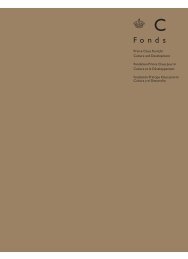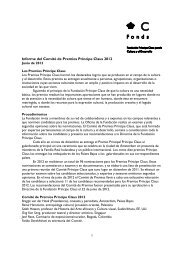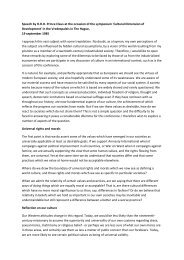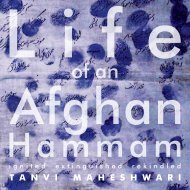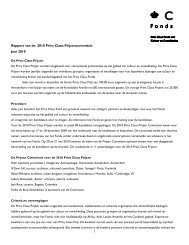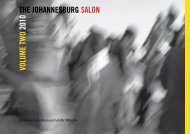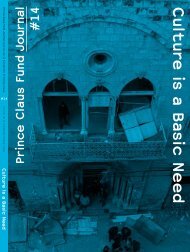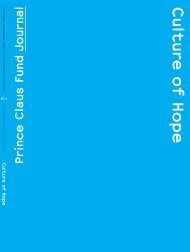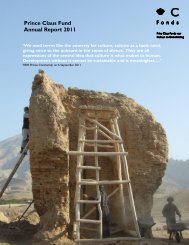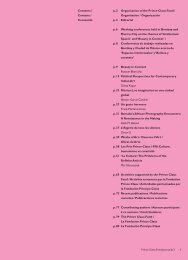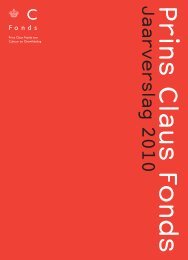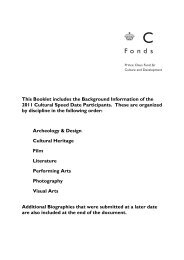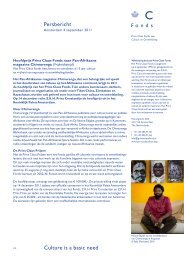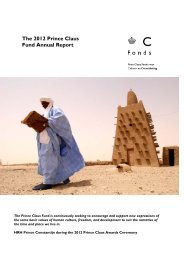3 summer 2011 - Prince Claus Fund
3 summer 2011 - Prince Claus Fund
3 summer 2011 - Prince Claus Fund
- No tags were found...
Create successful ePaper yourself
Turn your PDF publications into a flip-book with our unique Google optimized e-Paper software.
the collective wisdom of the ordinary people. It is as though the mass of thepopulation in the Caribbean possesses an intuitive grasp of the fundamentaltruth that a world which ignores the fact of plurality, of texture in the humanmakeup, of the multi-faceted nature of all living beings and the systems andstructures they create for their survival, is not a world fit for human habitation.What, then, is the lesson to be learnt from Caribbean cultural life with itsparadoxes, problem conditions and possibilities? It certainly shows that theshifting paradigms, determining the new international order under globalization,the textured sense and sensibility of third millennium youth bombarded withmyriad images of self and society via the media or through personal contact withpersons of different backgrounds, races and cultural origins, are all challengesto humankind’s creative diversity which must be managed with sensitivity anddaring. For the underlying regulative principles that make all of humanity themembers of one human family, despite the diversity, must also be acknowledgedand recognised. The Caribbean remains a good enough example of such acknowledgementand recognition of the ‘e-pluribus-unum’ concept in the shaping ofcivil society – the basis of 21 st century democratic governance.Such are the contradictions in the architectural designs and construction workthat attend both the building of bridges across continents in the interest ofhuman development, and the imperative of creative management of the complexitiesresulting. The investment in the human resource which is here implied demandsno less of the products of the exercise of the collective creative imagination.Carnival, inter alia, as an iconic element in Caribbean cultural life is naturally partof the journey ahead, rather than the minstrel-like self indulgence that too manyare likely to mistake it to be.For it is among these would-be ‘minstrels’ – the ordinary people from below –that is to be found the crucible in which Caribbean cultural life is forged. Andthis is known to all true Caribbean artists – popular performing, literate literary,and visual arts exponents (whether intuitive or academy-trained). From Sparrow,Black Stalin and Kitchener through Bob Marley and Peter Tosh to George Lamming,Kamau Brathwaite and Derek Walcott the word is long out that the extraordinarinessof Caribbean cultural life is the result of the ordinary lives lived by the massof the Caribbean people who may have been severed from ancestral hearths andsuffered the indignity of denigration and dehumanisation but have managed tosurvive and journey beyond survival to a rich, textured, diverse germ of a civilisationthat can be justifiably labelled ‘Caribbean’.71 · <strong>Prince</strong> <strong>Claus</strong> <strong>Fund</strong> Reader #3 · Summer <strong>2011</strong>



